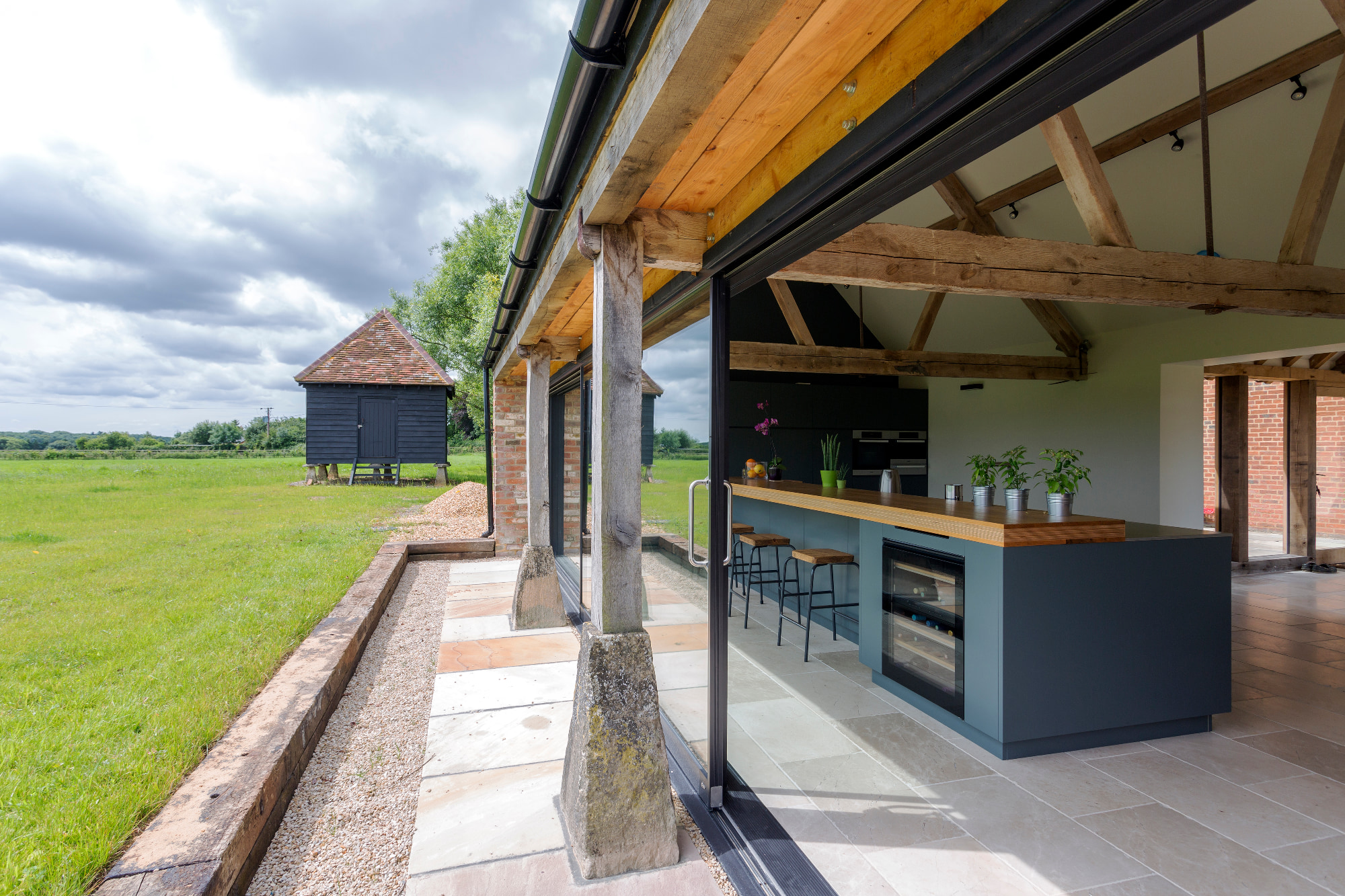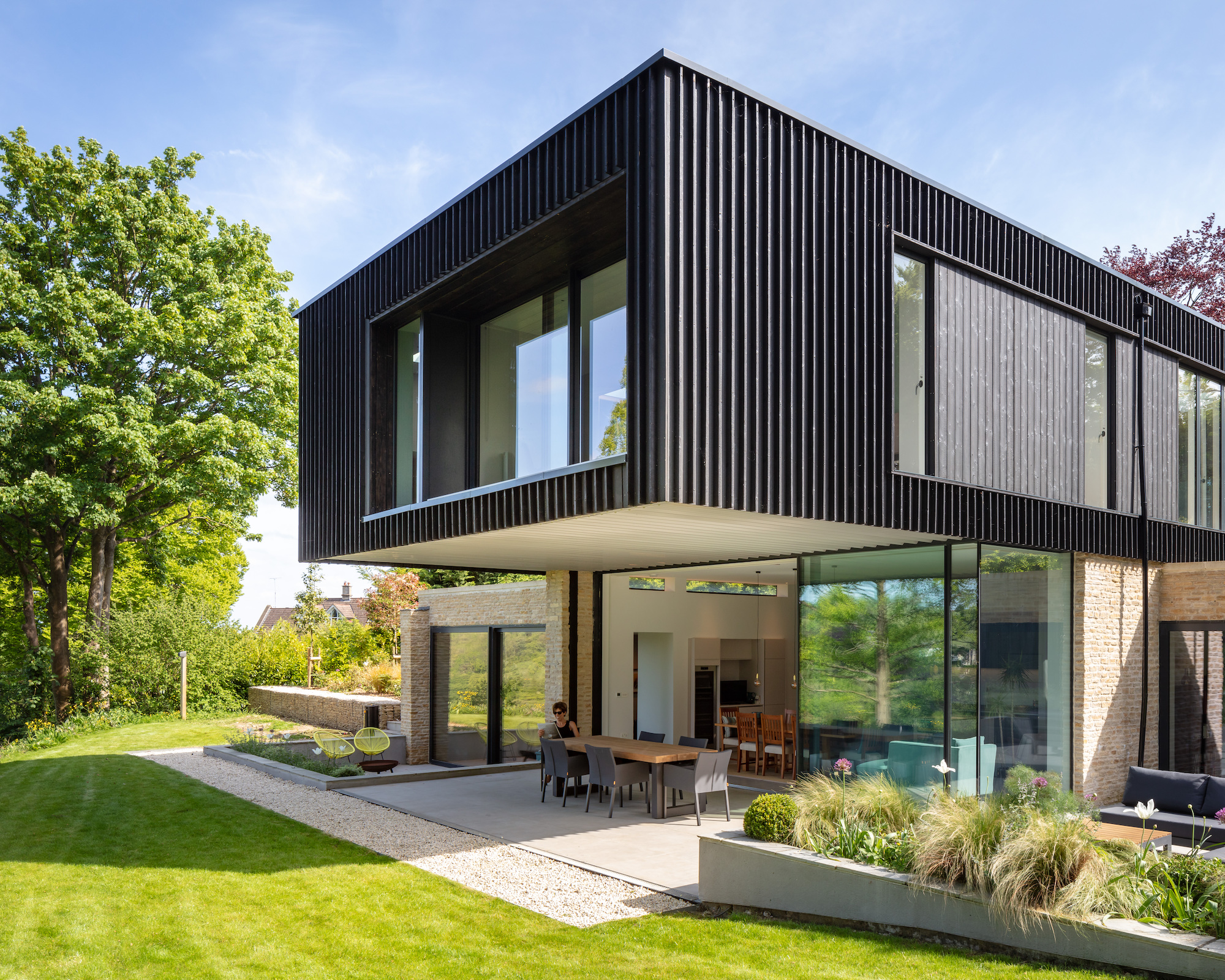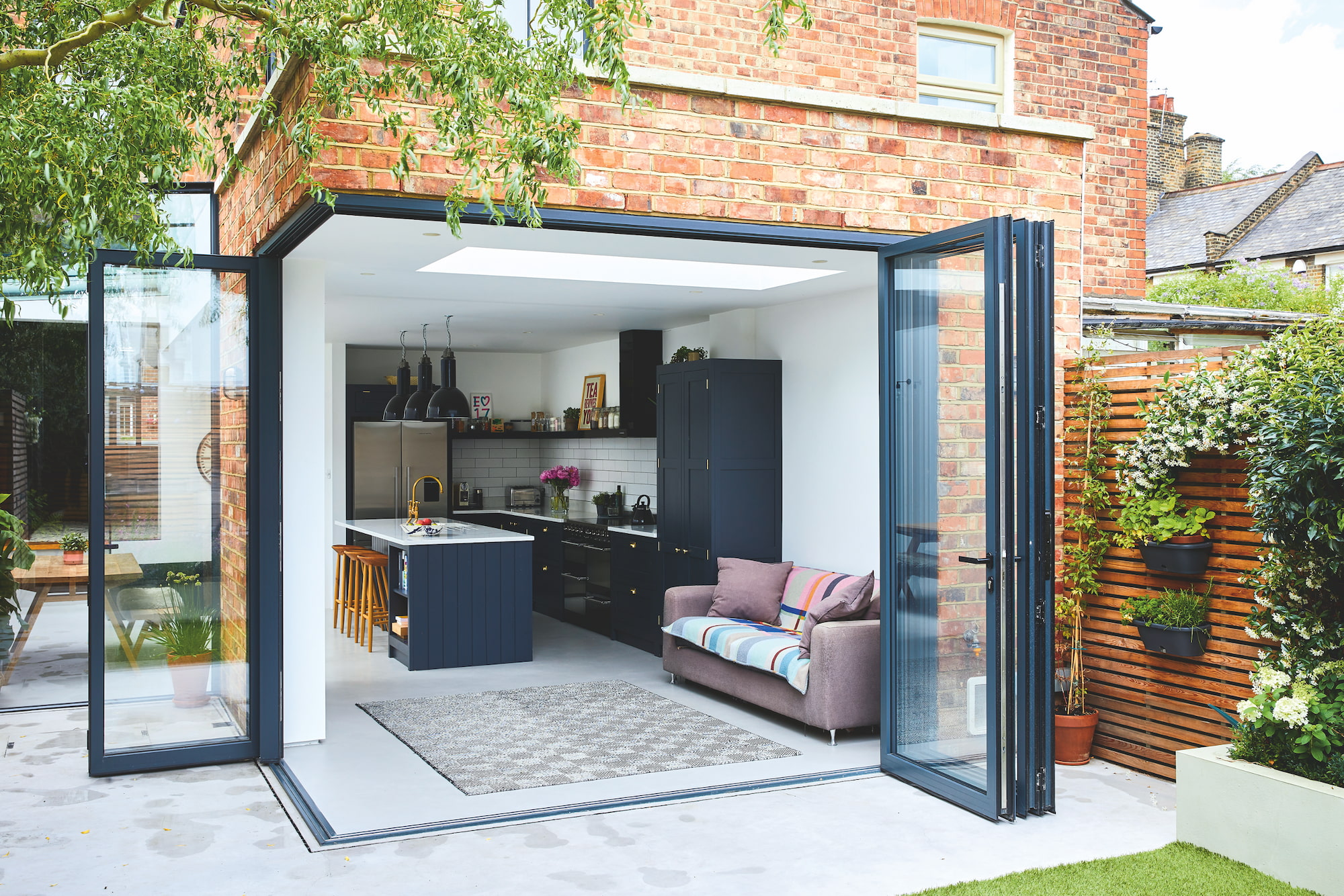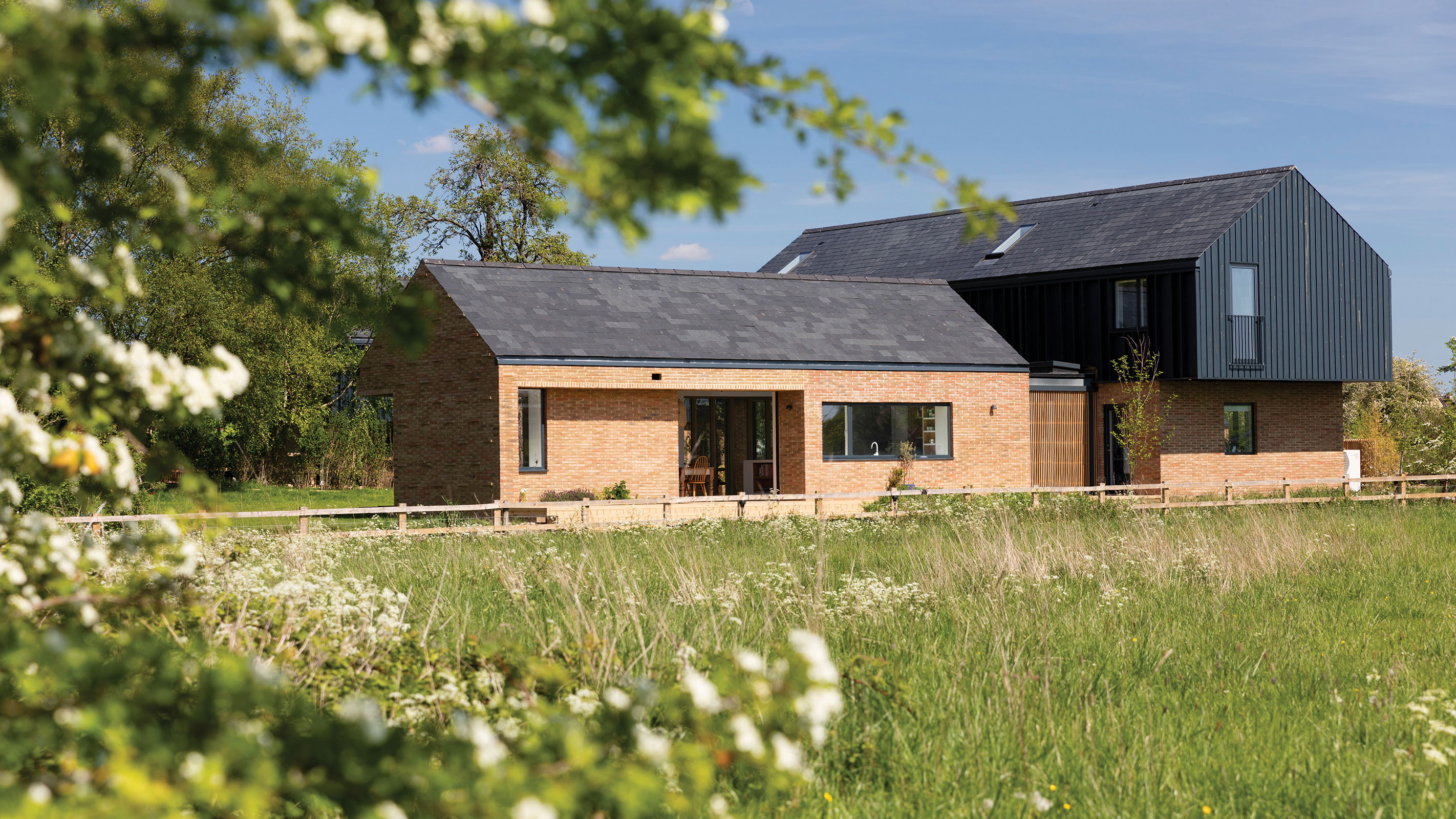
Bring your dream home to life with expert advice, how to guides and design inspiration. Sign up for our newsletter and get two free tickets to a Homebuilding & Renovating Show near you.
You are now subscribed
Your newsletter sign-up was successful
If instead of full planning, you are choosing to submit outline consent, then following up with the finer details of reserved matters is compulsory. But how does the process work and what is the best way to frame your submission? Here’s how to maximise benefits of reserved matters to reflect your dream build.
When it comes to planning permission in the UK, there are different types of applications that you can submit depending on the stage of your project. One of these is a reserved matters application, which is used when you already have outline planning permission but need to submit more detailed plans for approval.
In this article, I’ll delve into what reserved matters means, when you might need to use it, how it differs from outline planning, and why it can be beneficial to your application. We'll also explore the process for submitting a reserved matters application, what information you need to include, how long it takes, and what happens if your planning application is refused.
What are reserved matters applications?
Reserved matters refer to the details of a planning application that have not been decided upon in an outline planning permission (see below). These could include specifics such as the design and appearance of buildings, the landscaping of the site, or the access and parking arrangements. Essentially, reserved matters are the finer details of your development that need to be addressed before you can start building.
Reserved matters vs outline planning
Outline planning permission is a preliminary stage of the planning process that provides permission for the principle of a development and sometimes a selection of, but not all, the details of the development. Outline permission will typically cover things such as the proposed use of the land, the number and size of buildings, and the general layout of the site.
Reserved matters applications on the other hand, focus on the specific details of the development that were not addressed in the outline planning permission.
When to submit a reserved matters application

You would need to submit a reserved matters application if you have been granted outline planning permission. For example, if you were planning to build a house, your outline planning permission may have stated that you can build one 3-bedroom house somewhere on the site. However, you would still need to submit a reserved matters application to gain approval for the details of the exact location, the house design, its materials, the landscaping, and access arrangements for the site.
Bring your dream home to life with expert advice, how to guides and design inspiration. Sign up for our newsletter and get two free tickets to a Homebuilding & Renovating Show near you.
When a reserved matters application is useful
Submitting a reserved matters application can be beneficial if you want to get confirmation that some kind of residential dwelling on the site will be allowed, before you take the risk of spending money on getting, for example, the full design of the house drawn up. You may be building in a designated area or conservation areas. Or you might know the details of the design you want to use but you aren’t ready to confirm exactly where on the plot you want to build it, or you might not want to fully commit yet to the precise details of the vehicle access arrangements, for example.
If you have been granted outline planning permission, then submitting a reserved matters application is a crucial step in the planning process. Your reserved matters application will need to address all of the details that were not covered in the outline planning permission, and gaining approval for these details is necessary before you can begin building.
Information to include with reserved matters

The information you need to include in your reserved matters application will depend on the specific details of your development. However, you will typically need to provide detailed plans and drawings that cover the design and appearance of the buildings, the landscaping of the site, and the access and parking arrangements. You may also need to provide information on the materials that will be used in the construction of the development and quite often other reports such as ecology surveys or tree protection measures that might be required.
The exact documents needed will vary depending on the specific local authority, so it's important to check their guidelines and requirements or talk to a planning consultant before submitting them. They will obviously need to cover the details not confirmed in the outline application and any other requests for information that were demanded in the decision notice issued with the outline consent.
Q&A
Who approves reserved matters applications?
The process for reserved matters applications is similar in some respects to other types of planning permission application in that once the application documents are submitted, the local planning authority validates them to make sure everything they required is there, then the planning officer will consult with various bodies including the local town or parish council, the highways authority, heritage officers if appropriate etc. If there are problems or if more information is required then you or your planning consultant will be asked for this.
How long does a reserved matters application take?
The time it takes for a reserved matters application to be processed will vary depending on the specific local authority and the complexity of your development. However, the planning authority will typically provide a decision within eight weeks of receiving the application. If they require additional information or clarification, this may delay the process.

Can reserved matters applications be refused?
Yes, a reserved matters application can be refused if the planning authority believes that the details submitted do not meet either the requirements of the outline planning permission or the local planning policies and guidelines. If your application risks being refused, you may be able to make amendments to the application during the process to address these.
If your reserved matters application is refused, you will need to consider the reasons for refusal and whether you can make changes to address these issues and re-submit.
Can I amend a reserved matters application?
Amending a reserved matters application is possible, but it will depend on the specific details of the application and the reasons for not being policy compliant. If you need to make amendments, it's important to work with the planning authority to understand what changes are required and ensure that you provide all the necessary information and documents to support your revised application.
Can I reserved matters refusals be appealed?
You may also have the option to appeal the decision if you believe that the planning authority is simply wrong. Take advice from an experienced planning consultant on this first though, as he or she may advise that you’d be more likely to win an amended re-submission, rather than an appeal, which will be decided on the details of the application as it was when the refusal was issued.
In summary, reserved matters planning applications are an important step in the planning process for many developments in the UK. It allows you to provide more detailed plans and information about your development and gain approval for the finer details before you can begin building. While the process may seem complex and time-consuming, submitting a well-prepared and detailed reserved matters application can increase the chances of gaining approval for your development and help ensure that it meets the local planning policies and guidelines.
If you would like to learn more about the planning application process, you may find the information in our article 'Do I Need Planning Permission?' a good place to start.
Simon Rix is a professional planning consultant, who began his career working in local government in the 1990s. He was a council officer and later an elected councillor, so he knows how the planning system works from both sides. He went on to set up Planix.UK Planning Consultants Ltd; a consultancy company that advises self builders, home extenders and those taking on small to medium-sized building projects on planning permission.

